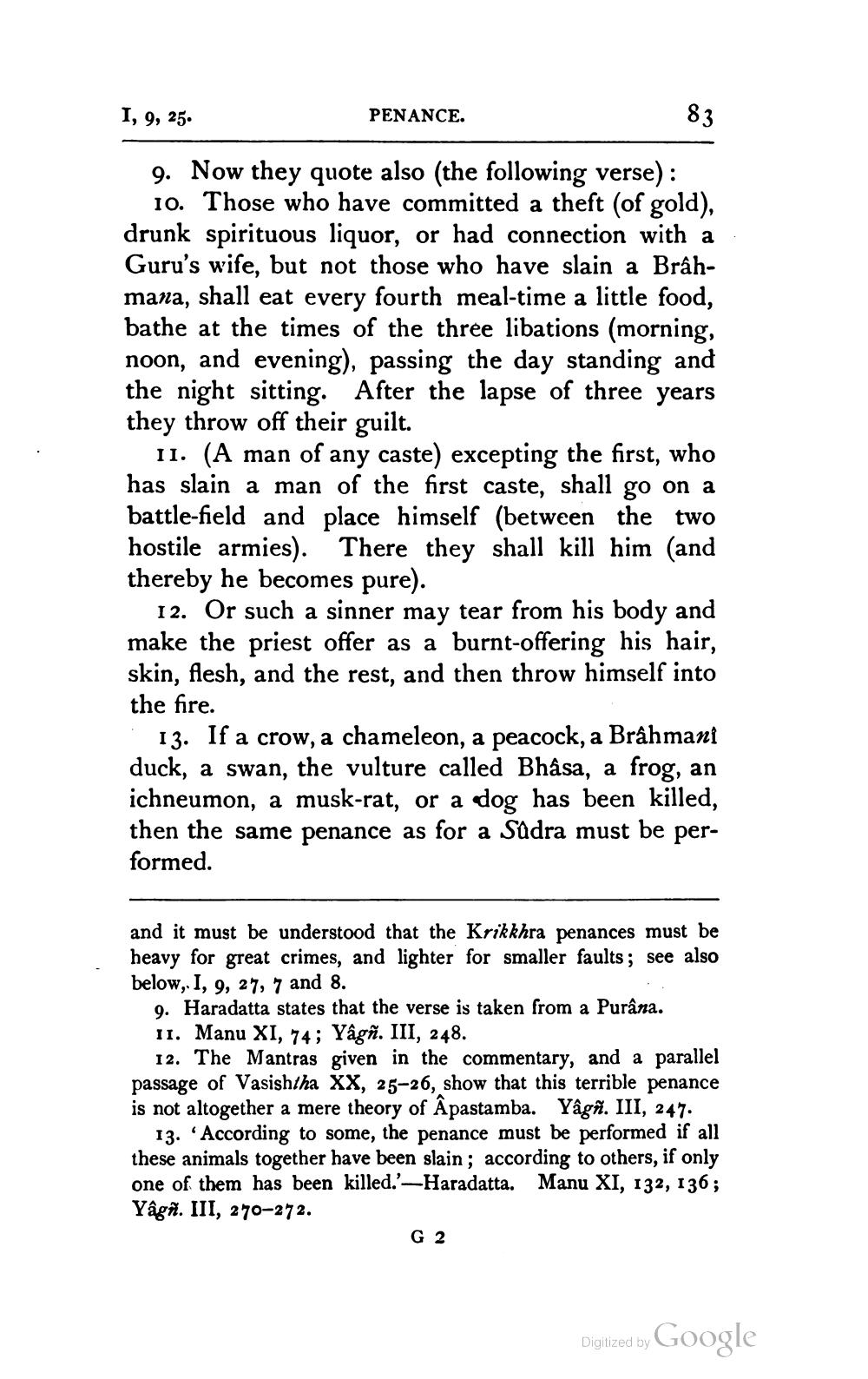________________
I, 9, 25.
PENANCE.
9. Now they quote also (the following verse):
10. Those who have committed a theft (of gold), drunk spirituous liquor, or had connection with a Guru's wife, but not those who have slain a Brâhmana, shall eat every fourth meal-time a little food, bathe at the times of the three libations (morning, noon, and evening), passing the day standing and the night sitting. After the lapse of three years they throw off their guilt.
11. (A man of any caste) excepting the first, who has slain a man of the first caste, shall go on a battle-field and place himself (between the two hostile armies). There they shall kill him (and thereby he becomes pure).
12. Or such a sinner may tear from his body and make the priest offer as a burnt-offering his hair, skin, flesh, and the rest, and then throw himself into the fire.
13. If a crow, a chameleon, a peacock, a Brâhmani duck, a swan, the vulture called Bhâsa, a frog, an ichneumon, a musk-rat, or a dog has been killed, then the same penance as for a Sadra must be performed.
and it must be understood that the Krikkhra penances must be heavy for great crimes, and lighter for smaller faults; see also below, I, 9, 27, 7 and 8.
0. Haradatta states that the verse is taken from a Purana. 11. Manu XI, 74; Yagñ. III, 248.
12. The Mantras given in the commentary, and a parallel passage of Vasishtha XX, 25-26, show that this terrible penance is not altogether a mere theory of Âpastamba. Yâgñ. III, 247.
13. According to some, the penance must be performed if all these animals together have been slain; according to others, if only one of them has been killed.'-Haradatta. Manu XI, 132, 136; Yâgn. III, 270-272.
G2
Digitized by Google




